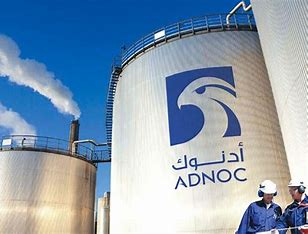Lack of definitive agreement on the petrochemical company’s environmental liabilities made Abu Dhabi state-owned company withdraw from negotiations
05/08/2024

Five years on, Alagoas has once again become the sticking point in Braskem’s sale process. The lack of a definitive agreement on the petrochemical company’s environmental liabilities in Maceió and a recent interest in other oil and gas assets around the world, including BP, led the Abu Dhabi National Oil Company (ADNOC) to give up on buying the Brazilian company, Valor has learned.
Braskem, however, is still on the radar of another Arab company, Petrochemical Industries Company (PIC), which received Novonor representatives in Kuwait last week, according to sources. PIC is still conducting due diligence, which is still in its initial stages.
Rumors that ADNOC was withdrawing from the dispute began circulating around 20 days ago. At the time, BP had already received an expression of interest from the Abu Dhabi state-owned company to buy a slice of its shares or control, according to Reuters. The talks, however, did not prosper.
According to sources familiar with the negotiations between Novonor (formerly Odebrecht) and ADNOC, the talks have progressed well, with signs that an agreement could finally be reached by the end of November. Novonor was still not satisfied with certain terms of the offer, but for the first time the parties involved in the potential transaction were converging on the same point: that of signing a sale and purchase agreement.
However, the collapse of Braskem’s rock salt mine 18 in Maceió in December and the exposure the case gained, culminating in an investigative parliamentary committee (CPI), threw cold water on ADNOC’s interest.
The Arab state-owned company wasn’t frightened by the soil sinking in Maceió per se but by insecurity generated by political interference in the discussions and questions surrounding the reparation agreements signed by the petrochemical company, as well as the lack of a definitive solution that could prevent, for example, questions about liability in the event of further events. So far, Braskem’s damages in Alagoas stands at R$15.5 billion.
In November, ADNOC made a new non-binding offer to buy control of Braskem, held by the former Odebrecht, for R$37.29 each share, or R$10.5 billion. The proposal was also presented to Novonor’s creditors – Bradesco, Itaú Unibanco, Santander, Banco do Brasil, and Brazilian Development Bank (BNDES) – who hold Braskem shares as collateral for debts of around R$14 billion.
For the sale of Braskem to go ahead, ADNOC would have to present a binding offer (with a commitment to buy) at the end of the due diligence it was conducting. Petrobras would then have to indicate its position in the transaction.
The petrochemical company’s second-largest shareholder, with 36.1% of the total capital (and 47% of the voting shares), Petrobras has the right to buy the share of its partner Novonor—38.3% of the total capital and 50.1% of the common shares—or to sell its stake together with the former Odebrecht.
At the beginning of Monday night, Petrobras informed that it is carrying out due diligence on Braskem for the possible exercise of a tag-along or pre-emptive right, in the event of the sale of the shares held by Novonor.
It is unclear how the creditor banks of the former Odebrecht will react to yet another failure in the years-long attempt to sell Braskem. In June 2019, LyondellBasell abandoned exclusive negotiations precisely because of the revelation of the soil-sinking problem in Maceió.
Sought for comment, Novonor said that it was still engaged “in order to move forward with the process, in line with the commitment made to its related parties,” and ADNOC confirmed that it had withdrawn from the negotiations.
*Por Stella Fontes — São Paulo
Source: Valor International
